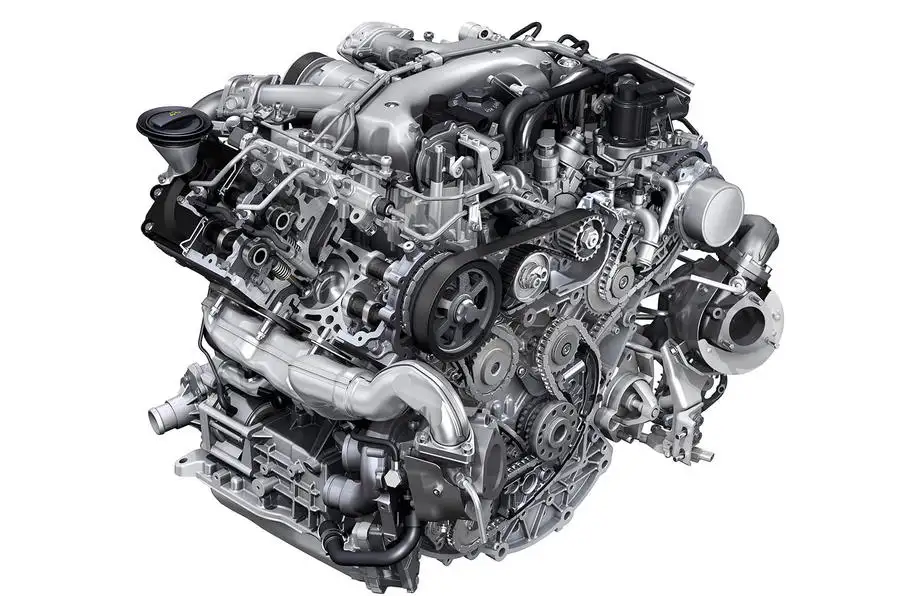Repair instructions
Diesel Engines: How Do They Work and Why Do They Last So Long?
Introduction: Diesel engines are renowned for their exceptional durability and performance. These engines are commonly found in heavy-duty vehicles and machinery, as well as in some passenger cars. Their impressive lifespan and robust design are due to their unique compression-ignition system, which allows them to run efficiently for hundreds of thousands of miles. But what makes these engines so reliable and long-lasting? Let’s dive into the mechanics behind diesel engines and explore why they stand the test of time.

How Does a Diesel Engine Work? Diesel and gasoline engines share a basic principle of operation: they both use internal combustion to generate power. However, the way they ignite the air-fuel mixture differs significantly. In a gasoline engine, spark plugs ignite the mixture, while in a diesel engine, the fuel is ignited through extreme compression.
In a diesel engine, air is compressed to a high temperature within the cylinder. When the diesel fuel is injected, the heat from the compression causes the fuel to spontaneously ignite. This process eliminates the need for spark plugs and allows for higher efficiency, especially in larger, heavy-duty applications like trucks and farm equipment.
The engine’s combustion drives the movement of the vehicle’s parts, which turns the wheels and expels exhaust gases, repeating the cycle thousands of times per minute while you drive.
How Long Do Diesel Engines Last? One of the main reasons diesel engines are so popular is their impressive longevity. In light-duty applications like pickup trucks, diesel engines can last up to 300,000 miles with proper maintenance. For heavy-duty vehicles like big rigs, diesel engines can go well beyond 1 million miles before requiring major repairs, and with care, they can last up to 30 years.
Diesel engines are built to handle higher levels of stress, thanks to their durable design. They also operate at lower RPMs (revolutions per minute) compared to gasoline engines, which results in less wear on internal components. This slower operation, combined with the engine’s robust construction, contributes to their extended service life.
Diesel vs. Gasoline Engines While gasoline engines have traditionally been more popular, diesel engines are catching up in certain areas due to modern technological advancements. Here’s how diesel engines compare to their gasoline counterparts:
- Fuel Efficiency: Diesel engines are more fuel-efficient due to their compression-ignition system. The heat generated from compression results in more energy for less fuel, leading to fewer stops at the gas station and better overall fuel economy.
- Torque Output: Diesel engines provide higher torque, which is particularly useful for heavy-duty work. This makes them ideal for vehicles and machinery that need to perform strenuous tasks over extended periods.
Are Diesel Engines Better? Choosing between a diesel or gasoline engine depends on your specific needs. Diesel engines tend to be more expensive upfront, but they offer significant long-term benefits in terms of fuel efficiency, durability, and performance. Diesel engines are also known for their strength, making them ideal for tasks that require heavy lifting or towing. However, they may struggle to start in extremely cold weather, and their higher initial cost might not be justified for drivers who don’t need the additional power and durability.
What is the Future of Diesel Engines? Despite concerns about their environmental impact, diesel engines are evolving. Advances in technology are making diesel engines more eco-friendly by improving fuel efficiency and reducing emissions. Key developments include:
- Cleaner diesel fuel and advanced engine technologies that reduce emissions while enhancing fuel economy.
- The growth of biodiesel and renewable diesel, offering more sustainable alternatives.
- The integration of hybrid systems in diesel vehicles to improve overall efficiency and reduce environmental footprints.
The future of diesel engines looks promising as the industry moves towards more sustainable and environmentally-conscious solutions. Diesel-powered vehicles, particularly in the commercial sector, continue to provide reliable, cost-effective options for a wide range of industries.
Conclusion: Diesel engines have earned their reputation for longevity and power. With their advanced design, high torque, and fuel efficiency, they remain a top choice for both heavy-duty and some passenger vehicles. While they come with a higher initial investment, their extended lifespan and lower operating costs make them a smart choice for drivers who need performance and reliability over the long haul. Whether you’re considering a diesel engine for work or personal use, understanding how they work and what they offer can help you make an informed decision.
